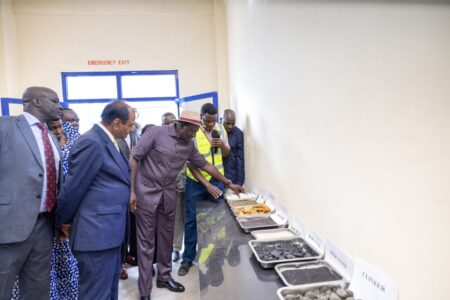Kenya Airways management has fallen out with its pilots over continued losses at the airline, in the latest of many stand-offs between the two groups.
This is in the wake of a Ksh8.5 billion (US$81.9 million) half year 2019 (January-June) net loss as the carrier remains in the red.
READ:Kenya’s national carrier sinks into Ksh8.6 billion loss
The latest performance is a dip compared to the Ksh4 billion (US$38.6 million) net loss reported in a similar period last year.
This is despite a slight growth in total income during the period which went up to Ksh58.9 billion compared to Ksh52.2 billion same period last year.
Management has blamed the losses to high operating cost occasioned by an expanded network.
During the period, KQ, as it is known by its international code, saw its operating costs edged up to Ksh61.5 billion compared to Ksh53.2 billion last year, which eroded gains made on income.
“The increase was mainly attributed to the return of two Boeing 787s that had been sub-leased to Oman Air and fuel costs which marginally increased by five per cent due to increased flying. The airline however benefitted from its fuel hedging programme,” Chairman Michael Joseph told investors through the Nairobi Securities Exchange (NSE) where the airline is listed.
READ ALSO:Are Kenya Airways profits in jeopardy?
“Despite the increase in revenues, we continue to register lower yields attributed to increased competitive environment, major currency fluctuation as well as a tough local macro-economic environment,” Joseph said.
Pilots
To add to its woes, KQ has blamed pilots for its high operating costs where it claims pilots mainly captains are drawing millions from its balance sheet.
It has also blamed the existing Collective Bargaining Agreement (CBA) for its operational woes.
According to CEO Sebastian Mikos, the current CBA favours pilots where among his concern is that they (pilots) can call in sick a few hours before take-off, something that has led to numerous cancellations and delays.
READ ALSO:Kenya Airways CEO to resign December 2019
Under the CBA, pilots are allowed to be absent for up to 48 hours without providing any medical evidence.
In the first seven months of 2019, KQ delayed 40 per cent of its flights. In the first two weeks of August 2019, KQ had 91 flight cancellations, out of which 68 were cancelled due to crew constraints. This constitutes 74 per cent of total cancellations in that period.
The cancelled flights cost the airline Ksh118 million, according to a parliamentary report, where about 4,234 passengers were disrupted during the period.
This came as the airline expanded its network by 17 per cent, flying about 150,000 more people this year compared to same period last year.
“During the first half, KQ continued its network expansion drive, opening the key strategic routes-Rome, Geneva and Malindi and increasing frequencies to other key destinations,” Michael Joseph noted.
The management has further noted that its highly paid pilots are draining its accounts. KQ’s pilots are reported to be among the highest paid in the world.
According to a parliamentary report on the airline’s operations, KQ’s wide body aircraft captains takes home Ksh1.8 million monthly compared to Ksh1.5 million paid by its competitors among them Emirates and Qatar Airways.
“They are well paid that one they can’t complain,” Mikosz is on record saying.
This has however not gone well with pilots who have now accused the management of failing to manage the airline properly, and instead directing their failure to them.
Through their association–Kenya Airline Pilots Association (KALPA), they said the airline had failed to invest in more pilots despite expanding its network, leading to the frequent cancellations.
According to KALPA, the airline has a pilots shortage where 414 pilots have been forced to operate a schedule that requires approximately 600 pilots.
More than 140 Pilots have left Kenya Airways in the last three years, which has further complicated the pilot shortage. This has been attributed to a hostile working environment within the airline.
READ ALSO:Kenya warns pilots over KQ strike
“Just to keep this airline afloat, we sacrifice family time and important social events to safely transport you as our guests,” KALPA General Secretary Murithi Nyagah said during a media briefing in Nairobi.
He described complex and challenging 12-18 hour shifts pilots undergo in a typical 24-hour cycle compared to the 8-hour shift model in the Public and Private sectors.
“Management is just using pilots as a scapegoat,” Nyagah said.
He indicated that pilots had made immense sacrifice and contribution to keep the company afloat during turbulent times.
For example this year, since January 2019 – pilots have saved Kenya Airways in excess of Ksh3.7 billion from potential flight-cancellation related costs, the General Secretary said.
He further indicated that Kenya Airways owes an accumulated backlog of 40,000 annual leave days to its pilots.
“The shortage is due to two aspects, namely- the low rate of recruitment and pilot attrition. It is no secret that Kenya Airways has one of the lowest rates of pilot recruitment in the world. This despite thousands of qualified Kenyan pilots in the Kenyan market who remain jobless,” he said.
KALPA has since called on the government to address the pilots’ shortage by ensuring more are recruited.
The association has further flagged the hostility by Kenya Airways management, accusing them of spreading false propaganda regarding the CBA.
“Should all pilots have rendered their services for free since the year began, Kenya Airways would still have declared a significant loss! So where lies the problem? Why the sudden attacks on the CBA? Isn’t this the same CBA that was in existence when Kenya Airways declared profits for years on end? Why was it not a problem then? The sudden and constant attacks on the CBA by Kenya Airways management are testament to looking for a scapegoat in pilots for their financial mismanagement, thus a deliberate attempt to divert attention from the real problems facing the Airline.” Capt Nyagah said.
Investigations
KALPA has supported the ongoing investigations at the airline by the Director of Criminal Investigations(DCI), who is scrutinizing KQ’s current and past procurement processes, as he seeks to unearth teething problems that have seen the airline remain in losses.
“Kenya Airways will only succeed if the government thoroughly investigates some of the issues that have bedeviled the company in the recent years,” the pilots association said, calling on the government to incorporate a Deloitte Forensic Audit Report and The Senate Report in the nationalization process, and also include key stakeholders contributions.
“KALPA is ready to present submissions to the government to ensure a smooth and beneficial turnaround process for the business and for the Nation at large” Nyagah said.
KALPA is an umbrella association for Pilots in Kenya with membership drawn from major airlines within the country. Kenya Airline Pilots Association was initially known as the East African Pilots Association prior to the breakup of the East African community in 1978.
Outlook
The global economic and geopolitical context remains uncertain, while Kenya Airways continues to operate in a highly competitive environment.
READ ALSO:As Kenya Airways struggles with the USA route, Ethiopian reacts
The Group continues to invest in improvement of operations, efficient network growth and improvement of service quality and delivery, Chairman Michael Joseph said.
“In the next half year, the board and management are working on a fleet refinancing programme, which once completed will improve the group’s cash flow. The impact of this programme on the Group’s financials will be announced to the public once the programme is approved for implementation,” he said.










